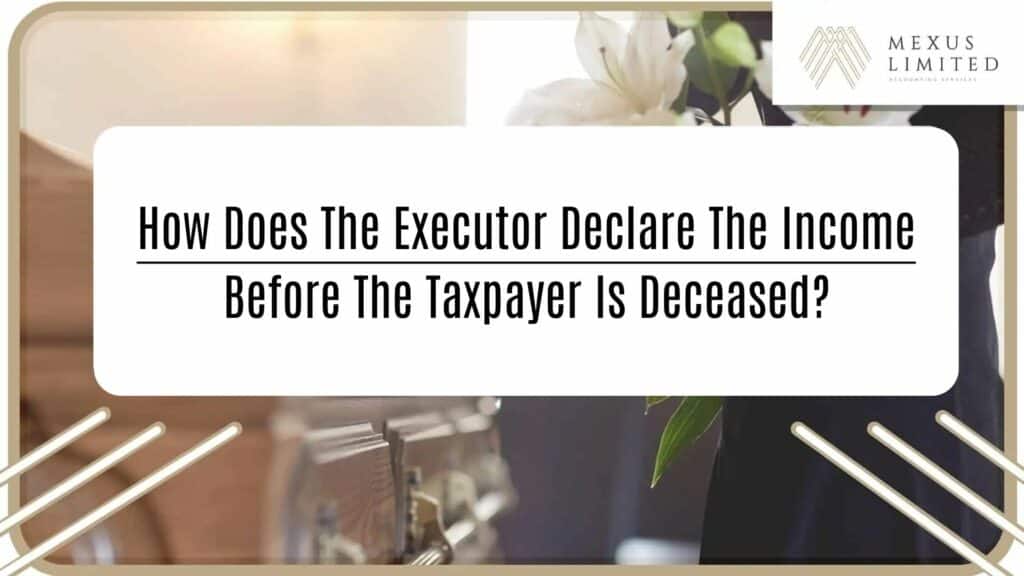How does the executor declare the income before the taxpayer is deceased?

The executor should fill in the tax return on the following income of the deceased taxpayer during his lifetime:
• Salary income
Fill in the salary or wages for the tax year of the deceased taxpayer from April 1 to the date of decease including the portion due but not collected.
• Full ownership of property rental income
Report the amount of rent for the tax year of the deceased taxpayer from April 1 to the date of decease. In addition, fill in the period from the date of decease to March 31 of the year. In each subsequent year, the total amount of rent collected throughout the year will also be reported until the beneficiary of the estate is determined.
• Joint Property Rental Income
The surviving landlord fills in the rental income and pays taxes for the deceased taxpayer before and after decease.
• Rental income of tenancy in common
Before the title of the deceased is officially changed, the estate executor must file a property tax return and pay the property tax on the rent of the title of the deceased person before and after his death.
• Sole proprietorship business profit
The date of decease of the deceased taxpayer is the closing date of the sole proprietorship business. The executor of the estate shall report the taxable profits of the profits tax business from the last business settlement date to the date of decease.
• Partnership business profits
A partner who deceases will be deemed to have withdrawn on the date of decease. The other partners of the partnership business must notify the Business Registration Office of the changes within one month after the decease of taxpayer, and the partners can report their taxable profits in the profits tax return as usual.
The above information is for reference only. If in doubt, we welcome your tax inquiries
